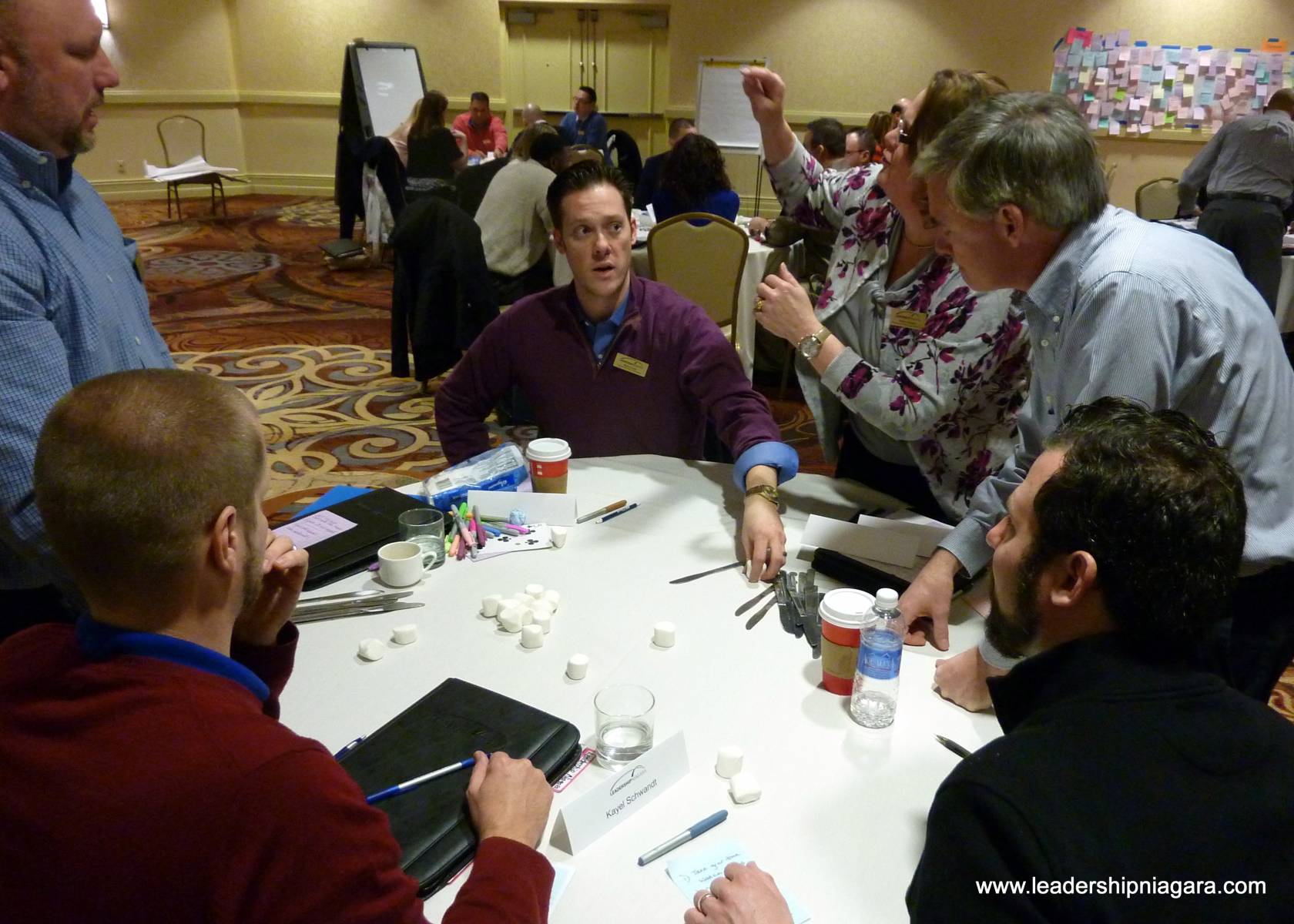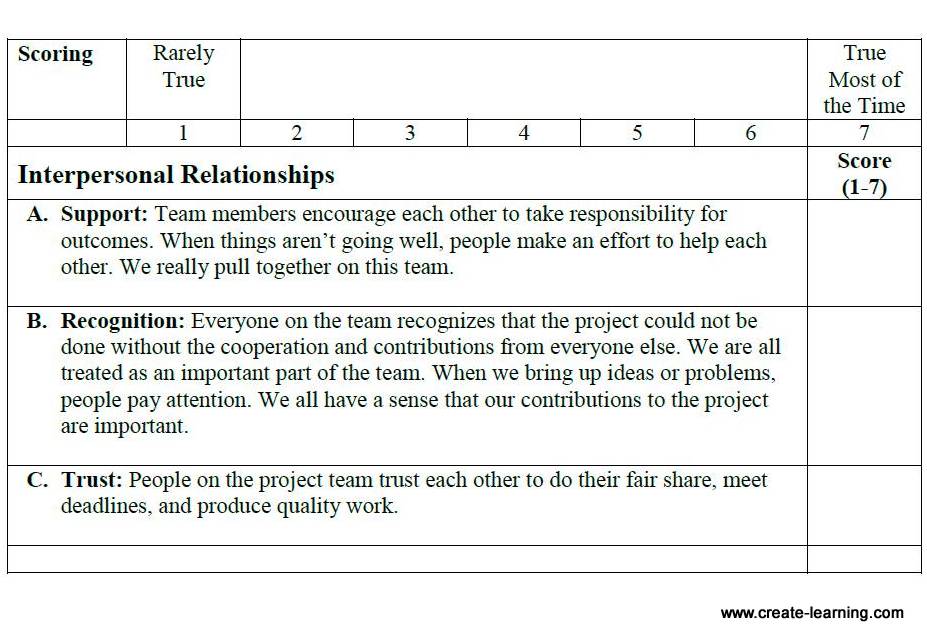
Most teams will have challenges. How they understand the obstacles & learn while working together is what separates high performance teams from average teams.
Not all problems can be or should be prevented
What should you do when you encounter difficulties?
- Return to the 7 Steps to High Performance Teams model. Ask the team where they are; What evidence they have to support their progress; How they can move to the next step; What obstacles or challenges may impede progress.
- Return to your Project Charter. Confirm that the team knows the Goals, Roles and Procedures.
- Take time on a regular basis to assess how the team is doing, identify any issues, and make necessary adjustments.
Sometimes a Team Effectiveness Survey can help.
A survey I use has 13 questions and will supply an understanding of where each person on the team is, and where to focus clarifying steps to make progress.
Here’s an example of ‘Interpersonal Relationships on the Team’ survey questions and format.
- This is often what managers think is the problem, and is rarely is. What is seen as strong personalities may be competent people doing what they think is right – in many different directions. I suggest that a manager or team leader focuses on the team structure and access to resources instead of playing psychologist.

The 3 Interpersonal Behavior questions show the need for psychological safety on teams.
“Changes to how the work gets done, changes how people work”
- Support: Team members encourage each other to take responsibility for outcomes. When things aren’t going well, people make an effort to help each other. We really pull together on this team.
- Recognition: Everyone on the team recognizes that the project could not be done without the cooperation and contributions from everyone else. We are all treated as an important part of the team. When we bring up ideas or problems, people pay attention. We all have a sense that our contributions to the project are important.
- Trust: People on the project team trust each other to do their fair share, meet deadlines, and produce quality work.
The Team Effectiveness Survey and questions serves the team to determine agreement and gaps that need to be addressed.
Having a process to evaluate where the team currently is and working together to make progress helps the team work and build the team while accomplishing shared goals.

